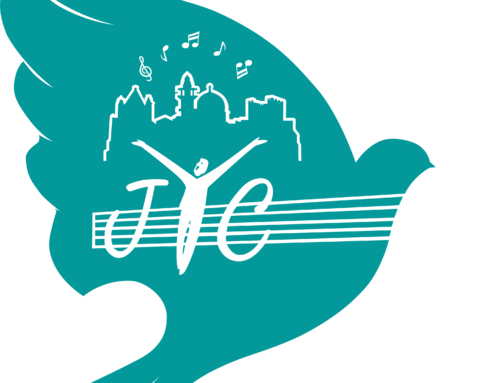About a third of this post was originally a comment I made below Nicole Cooper’s podcast conversation with Dr. Jeff Halper, the head of the Israeli Committee Against House Demolitions — an NGO whose ostensible purpose I applaud.
Ms. Cooper is a young Canadian who is doing great work as PPI’s intern in Israel and Palestine. A talented painter and photographer, she is by her own admission still learning the politics and history of the conflict. She told us that she wasn’t aware of Halper’s anti-Zionist perspective before she interviewed him, but that’s okay.
I listened intently. Dr. Halper’s discourse was fascinating, and of course, I share his concern for the ways in which Palestinians are restricted in their housing options, as well as enduring other inequities; all suffer from elements of discrimination and many (especially if not Israeli citizens) from outright oppression. Halper claims that over 47,000 Palestinian homes have been destroyed by Israel since the 1948 war. It is very difficult (often impossible) for Palestinians to obtain legal permits to build new homes or to expand their existing ones — which often results in the inhumane practice of having their technically illegal constructions suddenly demolished and their families rendered homeless.
This is appalling to me not only as a liberal but also as a Zionist. Israel acts against its own best interest when it doesn’t treat its non-Jewish citizens fairly and when it mistreats Palestinians in the occupied territories. Halper speaks of Zionism as if it requires such behavior as a matter of ideological doctrine; yet when one reads Israel’s Declaration of Independence, one knows that the “Jewish state” is not supposed to be exclusively Jewish:
. . . [The State of Israel] will foster the development of the country for the benefit of all its inhabitants; it will be based on freedom, justice and peace as envisaged by the prophets of Israel; it will ensure complete equality of social and political rights to all its inhabitants irrespective of religion, race or sex; it will guarantee freedom of religion, conscience, language, education and culture; it will safeguard the Holy Places of all religions; and it will be faithful to the principles of the Charter of the United Nations. …
And as Reuven Rivlin has shown–to the surprise of many during his first year in office as Israel’s president–even as a follower of the Revisionist right-wing brand of Zionism founded by Ze’ev Jabotinsky, there’s a liberal core to Zionism that decades of conflict and occupation have been eroding.
Ironically, in the guise of anti- or post-Zionism, Dr. Halper is attempting to revive the ideas of bi-nationalist streams that existed within the Zionist fold from the 1920s until Israel’s independence war in 1948 (he calls this “cultural Zionism”); these included one of PPI’s antecedents, Hashomer Hatzair. This was a noble–even heroic–orientation that found virtually no takers on the Palestinian-Arab side.
To this day, Palestinians have a hard time accepting the concept of Jews as a historical ethnic people–beyond a religious group–deserving a measure of national self-determination. This was dramatically illustrated during PPI’s visit to Ramallah in 2012:
Our meeting with Hanan Ashrawi was noteworthy because of the polite disagreement that occurred. . . . Somewhat to our surprise, she kept on speaking as if a Jewish state must be theocratic and exclusivist. At one point, she suggested jokingly that Israeli Jews must be really “insecure” if they need Palestinians to endorse their Jewish state; at this point I chimed in that this psychological insight is exactly correct. It is a disappointment to most … of us that these Palestinian friends of ours, while fully endorsing a two-state solution of an independent Palestine at peace with a sovereign Israel, are not fully on-board with the concept of “two states for two peoples,” partly because they don’t accept the Zionist Jewish self-definition of ourselves as a people or national group.
Furthermore, Halper ignores the decades of violence and oppression since 1948, which make a peaceful one-state solution much less likely than a two-state solution. Nor does he even consider that the failure of Oslo to deliver two states had something to do with extremist violence from both sides that took the life of Yitzhak Rabin and murdered over a thousand Israelis in waves of terrorist attacks, which led directly to the election of anti-Oslo prime ministers Netanyahu and Sharon. Even then, it was the tragically misguided choice of Palestinian voters to narrowly elect Hamas in 2006 (largely as an anti-corruption protest), which again underscored that obstacles to peace also exist on the Palestinian side.
The notion that Israel and Palestine can evolve into a political union that resembles Canada is well-intentioned but also incredibly naive. Even more so when Halper speculates on Israel (the stronger party) accepting an unrestricted Palestinian “right of return.” Still, Halper could be both radical and more realistic if he embraced ideas that are already out there, but not framed in ideologically-abrasive terms as attacks on Zionism.
Bernard Avishai (incidentally, a Canadian-Israeli) is among a number of observers and NGOs who speculate on the need for cooperative elements that may resemble a lose confederation in a final resolution of the conflict. As far back as 2003, the Geneva Accord/Initiative has even laid out a framework that would allow for a “right of return” that emphasizes compensation and resettlement for the original refugees and their descendants into the new Palestinian state and in third countries, as well as some agreed-upon number in what is now Israel. This is part of what Ehud Olmert was seriously negotiating with Mahmoud Abbas in 2007 and 2008, until his government disintegrated early in 2009 due mainly to his personal legal difficulties.





Leave A Comment